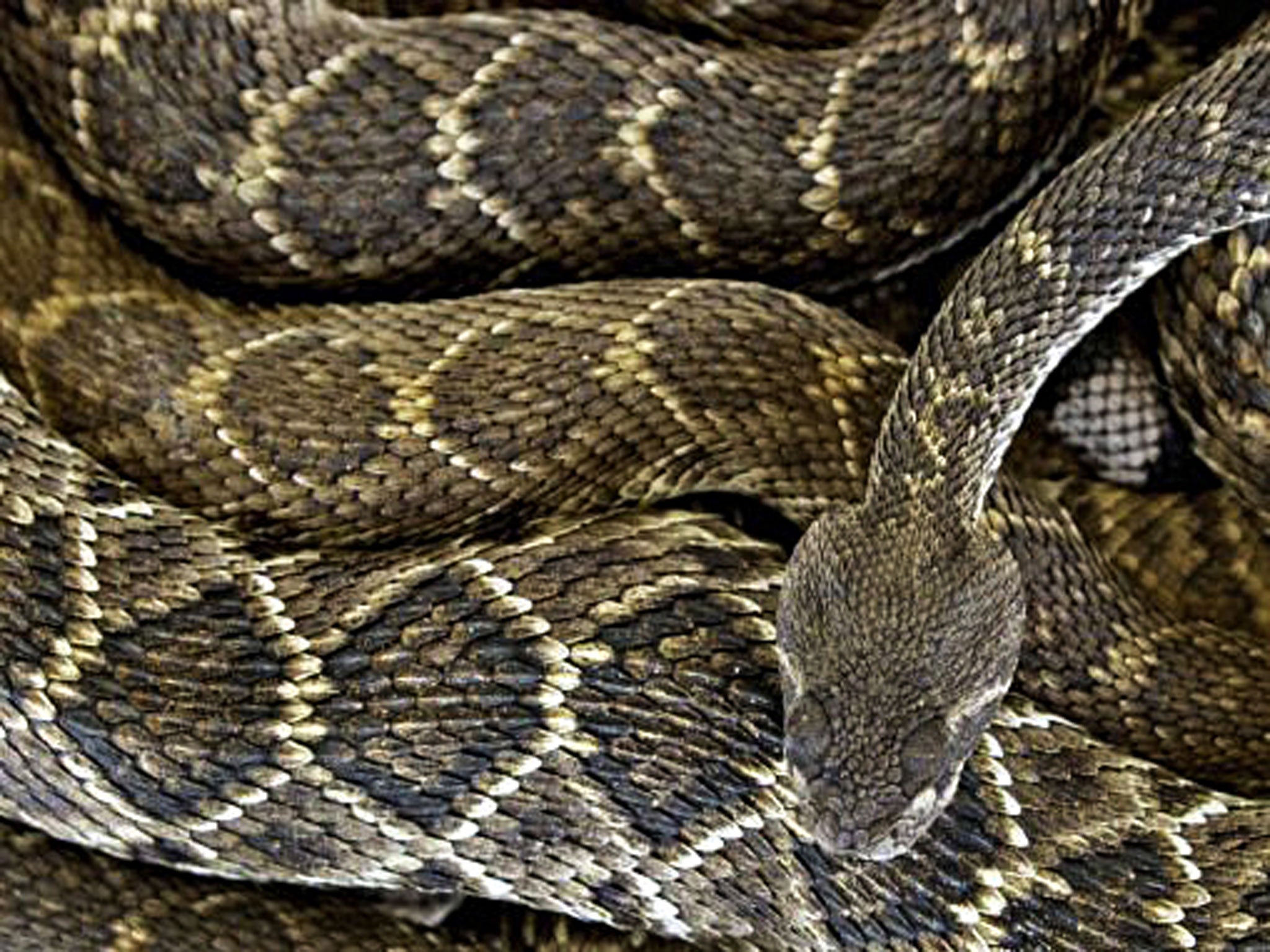Simon Calder: Snakes alive, but not for long – in Texas at least
The man who pays his way

Today is an excellent time to plan your spring break. Most UK travellers will choose a destination in the British Isles or continental Europe. But it is also springtime in Texas, where the hills are alive with the unmistakeable sound of rattlesnakes. Their tails resonate like machine guns, while their teeth can deliver a potentially lethal bite (that's the snakes, not the locals). Yet as the yellow roses bloom and the reptiles emerge from winter to slither hither and thither, their life expectancy dwindles.
The biggest state in the continental US has America's largest population of these raucous and dangerous creatures. By 1958, the people of Sweetwater in north-central Texas had had enough: "The over-population of rattlesnakes was causing harm to local farmers and ranchers who were losing their livestock to these natural predators." So say the organisers of what is billed as "The World's Largest Rattlesnake Round-up", which gets under way on Thursday.
Thousands of western diamondbacks (again, snakes, not locals) will be involuntary participants in the round-up. They will not, though, be invited to check in to a reptilian retirement home. Along with the right to bear arms, the US constitution appears to include an entitlement to cull critters. Once Miss Snake Charmer 2014 has been crowned, the organised snake hunts begin.
Europe has much to learn from Texan tourism. Where in this tired old continent can you join an excursion of the kind offered in Sweetwater? "Those wishing to participate in the guided hunts will need a container to hold live rattlesnakes and hand mirror, high-top boots, snake-bite kit and snake hooks or tongs." And, to ensure it is an equal contest, the rules conclude with "No Firearms Allowed!".
If you fancy a bite after your exertions, the dish of the day is rattlesnake, deep-fried – in snake oil, presumably. Charming.
Snakes on a plane
Should you want to witness the rattlesnake round-up, or hiss in outrage at the cruelty it metes out upon the western diamondback, go to see the snakes on a plane. On Monday, British Airways starts flying from Heathrow to the Texas state capital of Austin. The city is the same distance from Sweetwater, about four hours' drive, as Dallas-Fort Worth, to which BA already flies. But right now AUS is cheaper to reach than DFW.
New routes, like seedlings, demand nurturing. To build a strong link you need to get people on board and the only sure way to do that is to cut fares. The lowest fare I could find to DFW on BA next month is £770 return. Austin, which is around 150 miles further, is available at one-fifth less. But cheap tickets may not last for long. When I researched 48 hours in Austin, the citizens were as excited about the new link with Europe as they were about the imminent prospect of a Sweetwater snake snack – "considered a delicacy all over the world," the organisers claim. But you won't be offered snakes (or steaks) on the plane home; BA economy passengers from Austin will get either chicken or pasta.
Spring: a surprise
Snakes on the Texan plain aside, spring confers optimism and a flowering of new opportunities. On this side of the Atlantic, the brave new season brings some welcome new openings for travellers in Britain. Along the "Glamorgan Heritage Coast" in South Wales, the daffodil buds of March are out in timely fashion for St David's Day; my spy, Stuart Adams of Expedition Kit Hire in Cardiff, went to check on the shore in Llantwit Major.
Basingstoke rarely gets a mention in this column, but today the town begins to build its touristic reputation with the help of some plastic bricks. The Lego Lost World Zoo at Milestones Museum is an English riposte to the Rattlesnake Round-up. Rather than snaring snakes on either side of Interstate 20, the new attraction contents itself with representations of scaly creatures that, it is claimed, "historically roamed Hampshire". They are created from plastic and put on display close to the M3. Intriguingly, the official announcement suggests the Lost World begins on a Lost Day. "Opens from Saturday 29 February," it says.
Two weeks from now, The Pig – near Bath (yes, that's it's full name) opens. The location is the Mendip Hills – a corner of Somerset with a bit of altitude, unlike the "lakes on a plain" area of the county that has had to re-invent itself as a new aquatic paradise. The porcine property claims its style to be "shabby chic", though guests are not required to specify the category to which they subscribe. Every room has a "large monsoon shower", something that Somerset has experienced rather too much so far this year. The Pig also promises spa treatment in the Potting Shed and some good walks – though the Somerset Wildlife Trust warns about adders: "take care whilst out walking on Mendip".
Even the UK's rail industry has a joyful spring surprise for train travellers up its sleeve. From 9am on Monday morning, passengers who are no longer Young Persons but not yet Senior Citizens will at last be able to buy a National Railcard giving one-third off most train journeys. For example, the trip from Springfield to Springburn (via Edinburgh and Glasgow) falls by a fiver.
Inevitably, the spring treat comes with a tangle of strings attached (described in full in our special Q&A, online at bit.ly/2Trailcard).
The main clue is in the railcard's name, Two Together. You must apply for the card with a companion, and the discount is available only if you both make the journey at the same time. Single passengers may respond with venom.
Join our commenting forum
Join thought-provoking conversations, follow other Independent readers and see their replies
Comments
Bookmark popover
Removed from bookmarks